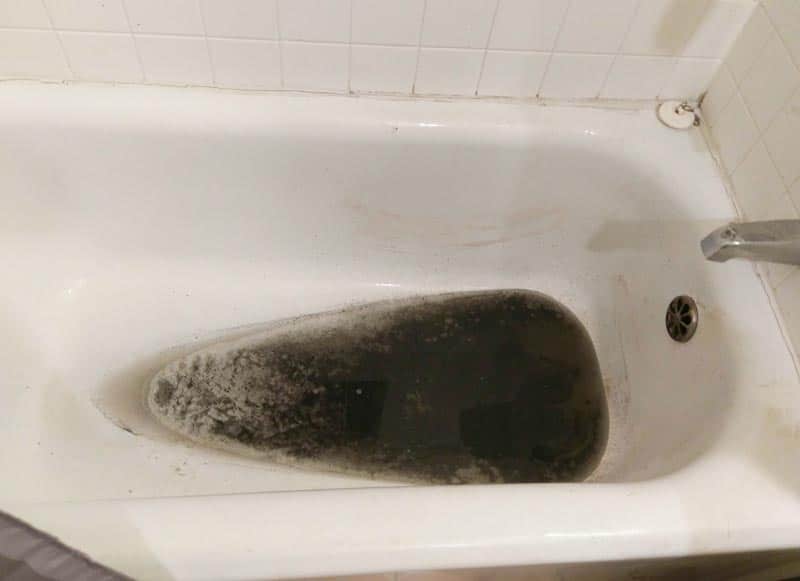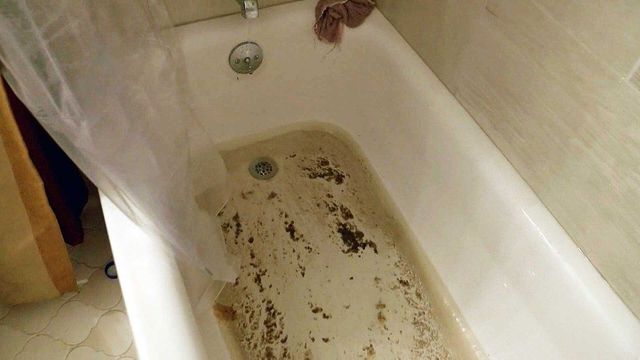Best Reasons for Sewage Coming Up in the Bathtub
Best Reasons for Sewage Coming Up in the Bathtub
Blog Article
Any individual seems to have their own thinking with regards to What to Do if Sewage Starts Coming Up Through Your Bathtub.

Sewer back-up in the bathtub can be an upsetting and unhygienic issue for any type of property owner. Not only is it troublesome, however it also postures major health and wellness threats and indicates underlying issues with the plumbing system. Comprehending why sewer is showing up through the bathtub is crucial for taking appropriate action to attend to the trouble properly.
Intro to the Issue
Usual Reasons for Sewage Back-up
Blockages in the Sewer Line
Among one of the most usual reasons for sewer backup is a clog in the drain line. This can take place because of the buildup of debris, oil, or foreign things in the pipelines, protecting against proper circulation and creating sewer to support into your bathtub.
Tree Origin Invasion
Tree roots seeking dampness and nutrients can penetrate drain lines via little fractures or joints. Over time, these roots can expand and broaden, creating substantial damage to the pipes and bring about sewage back-up issues.
Comprehending the Problem
When sewage draws back up into the tub, it's a clear sign of a trouble with the drain system. The wastewater that needs to be flowing far from your home is rather discovering its back right into your home, which can result in substantial damage and health hazards.
Potential Reasons
Numerous elements can contribute to sewage back-up in the tub. From clogs in the drain line to problems with the plumbing framework, recognizing the source is necessary for discovering an option.
Aging Framework
Older homes might have obsoleted plumbing systems that are extra prone to rust, splits, and deterioration. As pipelines age, they end up being more susceptible to leaks and obstructions, enhancing the chance of sewage back-up occurrences.
Heavy Rainfall or Flooding
Throughout durations of heavy rainfall or flooding, the drain system might become overwhelmed with excess water, causing back-ups and overflows. This can lead to sewage backing up into bathtubs and various other fixtures inside the home.
Indications of Sewage Backup
Foul Odors
Undesirable odors rising from drains pipes or components, especially in the shower room, may suggest sewage back-up problems. These smells are often solid and persistent, indicating a trouble that needs prompt attention.
Slow Draining Fixtures
Tubs, sinks, and commodes that drain gradually or otherwise whatsoever could be experiencing sewer backup. If several components are influenced simultaneously, it's likely that the concern stems from an usual point, such as the primary drain line.
Gurgling Sounds
Odd gurgling or gurgling sounds originating from drains pipes when water is running elsewhere in the house are indicative of air trapped in the plumbing system. This air buildup can result from sewage back-up and need to be examined quickly.
Health Threats Related To Sewage Back-up
Contamination of Water Supply
Sewage backup can contaminate the supply of water in your home, posturing a major wellness risk to you and your family. Exposure to polluted water can bring about gastrointestinal issues, skin infections, and other health problems.
Mold and mildew Development
Dampness from sewer backup can create optimal conditions for mold growth in your home. Mold and mildew spores can aggravate respiratory system troubles and trigger allergic reactions in sensitive people, making timely cleaning necessary.
Spread of Illness
Sewage has unsafe germs, viruses, and parasites that can create a variety of conditions, consisting of hepatitis, cholera, and gastroenteritis. Entering contact with sewage or polluted surface areas puts you in jeopardy of infection.
Cleaning Up After Sewer Backup
Disinfection Procedures
Extensively decontaminate and sanitize impacted locations after sewage back-up to get rid of harmful microorganisms and prevent mold and mildew growth. Usage suitable cleansing items and protective equipment to ensure safe and efficient cleaning.
Remediation of Impacted Areas
Repair any damage to flooring, walls, or components caused by sewage back-up. Depending upon the degree of the damage, you may require to change carpets, drywall, or other materials to restore your home to its pre-loss condition.
Immediate Actions to Take
Turning Off Water Supply
In case of sewer back-up, it's necessary to switch off the supply of water to avoid more contamination and damages. Locate the main water shutoff valve in your home and shut it off till the concern can be dealt with.
Getting In Touch With an Expert Plumber
Taking care of sewer backup is not a do it yourself work. Contact a certified plumber with experience in taking care of sewage-related concerns to analyze the circumstance and execute necessary fixings or cleanups.
Preventing Contact with Contaminated Water
Until the sewer back-up is fixed, stay clear of contact with infected water to prevent the spread of bacteria and pathogens. Wear protective equipment if you have to remain in the damaged location and clean your hands extensively afterward.
Preventive Measures
Regular Upkeep of Sewage System Lines
Set up routine assessments and upkeep of your sewage system lines to determine and deal with potential concerns before they intensify right into major issues. This can consist of cleaning out debris, checking for tree root intrusion, and fixing any kind of broken pipes.
Installing Backwater Valves
Think about installing backwater valves in your plumbing system to avoid sewage from flowing back into your home during periods of heavy rainfall or flooding. These valves automatically close when water starts backing up, protecting your residential property from contamination.
Appropriate Disposal of Family Waste
Prevent flushing anything aside from bathroom tissue and human waste down the commode to stop blockages and obstructions in the drain line. Dispose of grease, oil, and other home chemicals correctly to minimize the threat of plumbing issues.
Why Is Water Backing Up in My Bathtub When I Flush My Toilet?
What to do about a sewer line clog
First, don’t bother with plunging. No amount of plunging will dislodge the clog in a sewer line. The clog is too far away. Plungers are for clogs in the toilet itself, not the sewer line. Plus, the most likely causes of a sewer clog are:
Tree roots Flushed toys or feminine products Grease buildup Those items don’t move easily. And in the case of tree roots, the roots need to be cut out of the pipe and the pipe will need to be repaired.
You’ll need a closet auger. A closet auger is a type of plumber’s snake with a protective cover to keep from scratching the delicate porcelain toilet. If the clog is further down, you may need to remove the toilet or use one of your cleanouts to get to the clog.
We also recommend doing a video inspection of the drain to ensure that the cause of the clog has been completely removed. Otherwise, you could have the same problem again in a few days or weeks.
https://mspplumbingheatingair.com/blog/why-is-water-backing-up-in-my-bathtub-when-i-flush-my-toilet

I ran across that page on when scouting around the web. If you liked our post plz be sure to pass it around. Thanks a lot for taking the time to read it.
Quote
Report this page